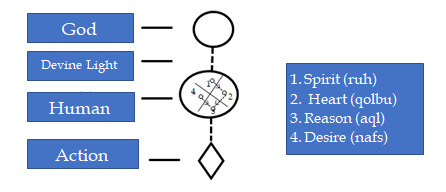DEVELOPMENT OF ISLAMIC PERSONALITY IN THE DIGITAL ERA WITH A MONOTHEISM-BASED CHARACTER EDUCATION MODEL
DOI:
https://doi.org/10.63889/pedagogy.v17i2.237Abstract
Children's character education in the modern era faces increasingly complex challenges, especially with the development of technology and changes in social values. Many current approaches to character education tend to be secular and lack attention to the spiritual values that are essential in shaping a child's personality. The monotheistic paradigm, which emphasizes the oneness of Allah as the foundation of life, has the potential to fill this void by offering a holistic approach to building a strong character and integrity.
Although many studies have discussed character education, there is still a lack of research that specifically integrates the monotheistic paradigm into children's character education curriculum, especially in modern contexts influenced by technology and rapid social change. This problem is the focus of research to identify how monotheistic values can be applied practically in character education. This study uses a qualitative method with a literature review approach. Data were collected through in-depth interviews with educators, parents, and students, as well as field observations at educational institutions that integrate Islamic values in learning. Data analysis was carried out thematically to identify the most effective elements of monotheism in shaping children's personalities. This study found that the development of a monotheism-based child's personality can increase integrity, empathy, honesty, and a sense of responsibility. This paradigmatic personality balances the aspects of faith and social responsibility so that individuals who prioritize justice, trust, and devotion to Allah, become rahmatan lil 'alamin with the role of caliph and servant of Allah. The development of a monotheism-based personality is implemented through 1) habituation of moral character, 2) understanding of human nature as 'Abd Allah, 3) strengthening the attitude of tawakal and effort and 4) implementation of the values of justice and equality in educating children. The challenges of the implementation of Tawhid in the Modern Era include the influence of technology and social media, which have the potential to distance children from the values of monotheism and the influence of the social environment, especially in an environment that does not support religious values.

Downloads
Published
How to Cite
Issue
Section
License
Copyright (c) 2024 Sholihul Anwar, Siti Rosyidah, Sukisno

This work is licensed under a Creative Commons Attribution-ShareAlike 4.0 International License.





